- Alliance of Science Organisations in Germany
- Statutory Bodies
- General Assembly
- Executive Committee
- Joint Committee
- Review Boards
- Liaison Officers
- Head Office
- Contacts A-Z
- Programme Contacts
- Berlin Office
- Executive Board
- International Cooperation
- European Research Policy
- International Activities
- Representation Abroad
- News from the Offices Abroad
- Research in Germany
- Funding Opportunities
- All Funding Programmes
- Scientific Prizes
- How the DFG Supports Research Careers
- Calls for Proposals
- Funding in an International Context
- Cooperation with Individual Countries and Regions
- Research Vessel
- Things to Know about the Proposal and Funding Process
- Principles of Eligibility
- The elan Portal
- Individual Grants Programmes – A How-To Guide
Forms and Guidelines
- Final reports
- Subject Area Structure and Interdisciplinarity
- How does the DFG decide on funding proposals?
- Special Funding Initiatives
- Excellence Strategy
- National Research Data Infrastructure
- Funding for UAS
- Knowledge Transfer
- Refugee Researchers
- Clinician Scientist Programmes
- Artificial Intelligence Funding Initiative
- Basics and Topics
- Basics and Principles of Funding
- Equity and Diversity
- Good Research Practice
- Handling of Research Data
- Handling of research software
- Handling Security-Relevant Research
- Portal Research Integrity
- Developments within the Research System
- Digital Turn
- Academic Publishing
- Open Access
- Relevance of Diversity in Research
- Citizen Participation
- Sustainability Guide for Research Processes
- Scientific Commissions
- Health Hazards
- Food Safety
- Animal Research
- Genetic Research
- Clinical Research
- Biological Diversity
- Transformation of Agricultural and Food Systems
- Pandemic Research
- German Committee for Sustainability Research
- Funded Projects
- Prizewinners
- Communicator Award
- Copernicus Award
- Europa Prize
- Ursula M. Händel Prize
- Gottfried Wilhelm Leibniz Prize
- Heinz Maier-Leibnitz Prize
- Albert Maucher Prize in Geoscience
- Bernd Rendel Prize
- von Kaven Award
- Current Projects and Programmes
- Collaborative Research Centres
- Research Training Groups
- Priority Programmes
- Research Units
- Clinical Research Units
- Centres for Advanced Studies in Humanities and Social Sciences
- DFG Research Centres
- Clusters of Excellence
- Research Information Systems
- News and Current Topics
- Press Releases
- Information for Researchers
- Press Contact
- Facts and Figures
- Annual Report
- Funding Atlas
- Evaluation, Studies and Monitoring
- Publications
- Magazine „german research"
- Statements and Position Papers
- Publications of the Commissions
- Publications by DFG Divisions
- Statistical Documentation
- Information Material

Individual Research Grants
Further Information
Research grants enable individuals who have completed their academic training to conduct at any time research projects with clearly defined topics and durations, regardless of the subject.
To enable scientists and academics to carry out a research project on a specifically defined topic within a limited time period.
Eligibility Requirements
Qualified researchers (as a rule, those holding a doctorate) from all disciplines working at German research institutions
Researchers working at institutions which serve purely commercial purposes or those who are not permitted to publish findings in a generally accessible form are not eligible to apply.
Proposal Requirements
A research project of high scientific quality and originality, carried out at an international level
Type and Extent of Funding
- Guidelines Research Grants Programm e
- Basic Modul e
- Temporary Positions for Principal Investigator s
- Replacement s
- Temporary Substitutes for Clinician s
- Project-Specific Workshop s
- Mercator Fellow s
- Public Relation s
- Standard Allowance for Gender Equality Measure s
Funding Duration
The duration of funding is based on the individual project needs (as a rule, several years).
- Forms and Guideline s
First proposal: No submission deadline
Renewal proposal: At least 6 months before the approved funds have been exhausted
The DFG has a wide range of options to support research groups engaging in international collaboration.
DFG support for collaborative ventures
- Cooperation with developing countrie s
- Middle East Cooperatio n
Support for cooperation provided by foreign partner organisations
- International calls for proposal s
- Further information on the Standing Open Procedure s
In addition, researchers at a foreign research institution can participate as part of a so-called “general international cooperation”.
- Funding in an International Contex t
The Deutsche Forschungsgemeinschaft (DFG, German Research Foundation) uses the term ‘long-term project’ to refer to research projects in the humanities and social sciences that require continuous funding for at least 7 years and a maximum of 12 years (possible examples being editions, corpora, archaeological excavations, and social or behavioural longitudinal studies). To be recognised as a long-term project, a project must be characterised by its central scholarly importance, thorough preparation and planning, and professional management.
- Further Informatio n
Detailed information on the proposal process
- Programme Contact s
Cookie-Settings
Cookie settings.
Our website uses cookies that are strictly necessary for its technical functionality and cookies for the collection of statistical information (analytical cookies).
Statistical analysis of how our online service is used involves use of the “Matomo” analytics service on our website. Analytical cookies help us to improve our site and to optimise it in the interest of our users. Matomo uses cookies. These are small text files that are stored on your end device and enable us to analyse your use of our website. Evaluation of how visitors use our website is conducted in an anonymised form, which merely involves recording of your IP address in an abbreviated format. This means that we can’t identify you as a user. We do not pass on your data to third parties. We store the collected information for 13 months and then delete it.
For further information on our procedures, the terminology used (such as “cookies” and “statistics”) and your rights, please refer to our Data Protection Notice . You can use the Cookie setting s to revoke your consent to the processing of your data at any time.
Navigation and service
Research in germany - land of ideas : date: 05.08.2022 , theme: international affairs.
Germany is a top destination for international researchers. Under its initiative Research in Germany, the Federal Ministry of Education and Research supports targeted acticities to promote Germany as a land of ideas and innovation.
Germany is an open and cosmopolitan country which offers unique opportunities for international researchers at all career levels.Over 1,000 publicly funded research institutions, some 400 higher education institutions and extensive industrial research make Germany’s research and innovation exosystem uniquely broad-and diverse.
Moreover, Germany invests heavily in research and innovation: from grants for individual researchers to tax benefits for companies. Total annual expenditure for research and development is well above 3% of GDP – more than in most other major economies worldwide.
Fostering international cooperation and visibility
Germany is one of the world’s leading research nations. At the same time, it is in strong global competition for talent. International cooperation and visibility are key requirements for securing Germany’s position as a top destination for researchers and innovators. The initiative Research in Germany of the Federal Ministry of Education and Research ( BMBF ) is an important element which contributes to this aim. It implements targeted activities around the globe to promote Germany as a land of ideas and innovation.
The online plattform www.research-in-germany.org is the key gateway for international researchers to learn more about funding programmes and grants at all career levels, the German research landscape and to read the latest R&D news.
box: information
The Federal Ministry of Research and Education launched Research in Germany in 2006. The initiative supports targeted measures to promote Germany as a leading destination for research and innovation. The key aim is to raise awareness of the opportunities which Germany offers to international researchers and innovators. Currently, the activities of Research in Germany are implemented by the German Academic Exchange Service ( DAAD ).
Special announcement
Research in germany.
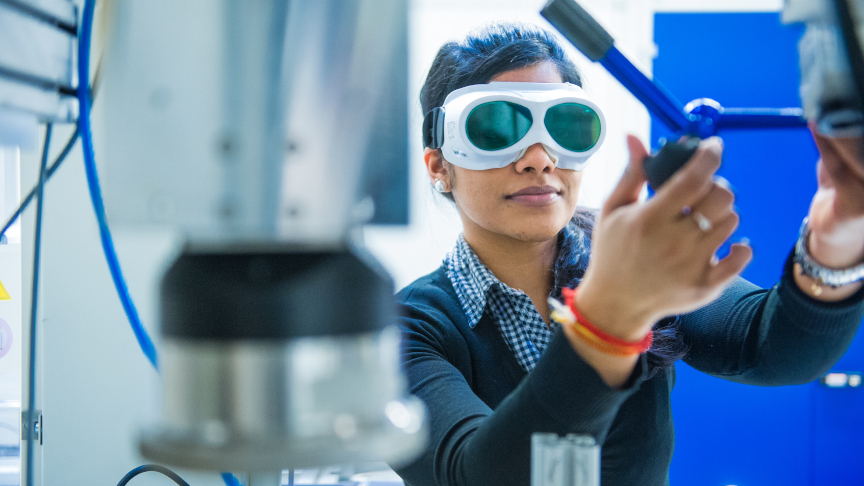
Germany offers excellent research opportunities for EU/international PhD students and researchers. Universities and other higher education institutions as well as public- and private-sector non-university research institutions and large research funding organisations support international researchers with postdoctoral jobs and fellowships. Interesting development opportunities for international researchers also exist in research-intensive industry and with small and medium-sized enterprises. Many companies also work closely with universities and research institutions in application-oriented research and development.
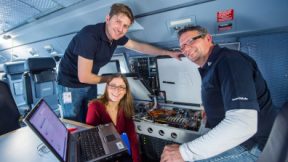
First Steps
Getting Started
Join the more than 32,000 international researchers and scholars being funded to conduct research in Germany! Please use the links below to get you on your way to adding research in Germany to your resume.
- Information for PhD students at research-in-germany.org
- Information for Postdocs at research-in-germany.org
- Information for Senior Researchers at research-in-germany.org
- Research Organizations at research-in-germany.org

Funding Opportunities
Financing Your Research
A wide selection of funding programs to conduct research in Germany is available for international academics and researchers, whether you are an undergraduate, graduate, or doctoral student, postdoc or a senior scientist. All it takes is this first click to get started.
- Research Funding at research-in-germany.org
Advertisements by German Universities

Full Scholarships Available: Master of Law & Business
Apply by 15 January and study with a full or partial scholarship at one of Germany’s top private universities: Bucerius Law School in Hamburg. Find out more!

“Master of Science in Manufacturing Technology” (M.Sc.)
Boost your engineering career by studying Manufacturing in Germany, one of the top Manufacturing nations worldwide! Apply from Feb 1st – Mar 15th at TU Dortmund University. No tuition fees.

Brighten your future with a Master’s in Optics & Photonics at KSOP
2-year M.Sc. program taught in English. Graduates excel in Ph.D. studies or industry. Apply by September 30 for intake 2023!

Technical Engineering (B.Eng.): Start your career by studying at OTH A...
Would you like to pursue a career as an engineer? OTH Amberg-Weiden offers you the best opportunity to obtain a Bachelor of Engineering degree at a leading German university.

MBA & Engineering in Life Science Management Programme
Internationally accredited MBA&E providing life science expertise required in leaders of the future combining comprehensive, industry-specific knowledge and management skills.
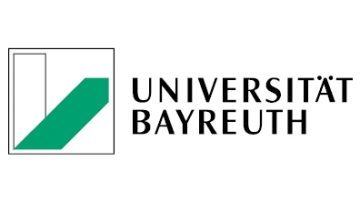
International Master program “Digitalization & Sustainability in Mater...
Do you want to successfully address current challenges of our time and create impact for a sustainable future? Do you want to explore the potential of combining materials science, digital technologies...

Study in Berlin – Summer and Winter
FUBiS is an intensive academic program of Freie Universität Berlin through which students can earn credits. Sessions run for 3 to 6 weeks taking place in summer and winter.

Kick-start your future career in Financial Management
If you are interested in management and finance our premium MBA program Financial Management with an optional Dual Degree from UniSC Australia and a Bloomberg Lab could be just right for you!

Professional IT Business & Digitalization Master
Looking to boost your IT career? Discover the international Master’s program in Professional IT Business & Digitalization at HTW Berlin!

Research in Design, Art and Media – Designing the Future
The Master's programme for up-and-coming (media) artists, designers, illustrators, photographers, filmmakers etc. Apply now for summer semester 2025!

Advance your career with an MBA from Pforzheim University, one of the ...
The full-time MBA in International Management at Pforzheim University combines a classical management education with the most relevant future topics: Innovation & Digital Business, Sustainable Global...

English-taught Master Programmes in Green and Information Technologies
Study innovative, future- and practice-oriented engineering Master’s programmes in central Germany!

Study in Berlin - MBA & International Master’s Programmes
Study management in English. Improve your leadership skills. Gain digital know-how. Become part of an international student body. Benefit from many corporate activities, valuable career consultation a...

Hands-on Master’s programs at Hof University Graduate School
Kickstart your career with our hands-on M.B.A. and M.Eng. programs. All programs include a one-year internship - a great opportunity to apply your knowledge and gain additional professional experience...
Boost your career with the International Master‘s in Project Managemen...
Boost your career. Acquire a German Master’s degree in Data Science & Project Management. Join us at HTW Berlin – On Campus or Online!

Bonn Graduate School of Economics (BGSE) - Combined M.Sc. Economic Res...
Are you ready to advance your career in economics? BGSE offers a dynamic doctoral program designed to drive you towards success. Call for Applications. Scholarships Available. Admission with bachelor’...
Regional Office New York
DAAD Information Center San Francisco DAAD Information Centre Toronto
- Higher Education and Research
New research paths
Germany offers international scientists and academics an attractive research landscape and a wide range of funding options.

What sets the German research landscape apart? Great organisations and good funding: Germany boasts over 1,000 publicly funded research institutions, plus numerous departments of research and development in industry. Recently, annual internal corporate expenditure on research and development (R&D) in Germany reached a new record high of 75.6 billion euros. It is thanks in part to the state and universities that Germany ranks among the top few international countries that spend more than 3 percent of gross domestic product on R&D. Germany is using its Excellence Strategy to strengthen its universities – both in the top tier and across the board. Through its High-Tech Strategy 2025, it is promoting innovations that will help combat cancer, reduce plastic in the environment and make industry largely greenhouse gas neutral, to name but a few.
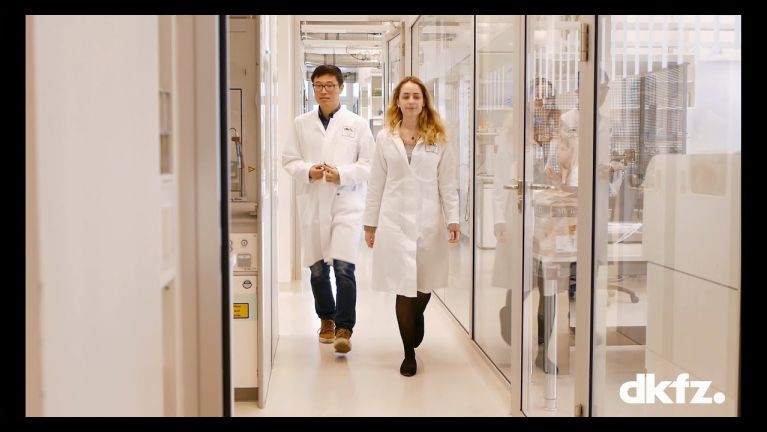
Dieses YouTube-Video kann in einem neuen Tab abgespielt werden
Third party content.
We use YouTube to embed content that may collect data about your activity. Please review the details and accept the service to see this content.
Piwik is not available or is blocked. Please check your adblocker settings.
What career opportunities are there in Germany? Germany offers a wide range of options to researchers at all kinds of career stages. This starts with doctoral students: Germany has the most doctoral students in the European Union by far, with over 5,500 international students completing their PhD in Germany each year on average. The fact that around 3,500 professors from other countries are employed at German universities is a sign of their increasing internationalisation. In terms of the number of R&D personnel as a proportion of the total number of gainfully employed, Germany far exceeds the European Union average, and is also ahead of China and Japan. Around two thirds of these employees drive innovation forward in industry.
How are international researchers in Germany funded? Germany attaches great importance to funding research-driven innovation. Around a third of R&D expenditure comes from the public sector. Numerous organisations, including the DAAD and the Alexander von Humboldt Foundation , provide funding for international researchers – over 33,000 are currently being supported with grants. The “Research in Germany” portal and the “ Funding your research in Germany ” brochure provide comprehensive information about the various funding opportunities.
This database allows you to search for specific grants and scholarships.
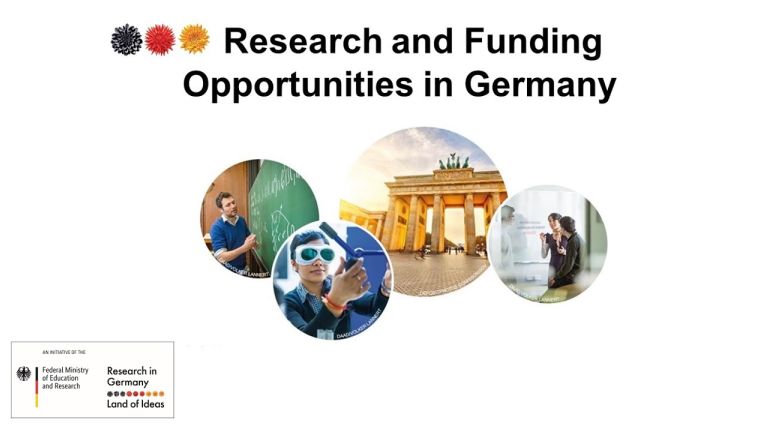
© www.deutschland.de
You would like to receive regular information about Germany? Subscribe here:
- Newsletter #UpdateGermany
Related content

- { expandedNavigation=true; activeIndex=0; setTimeout(() => document.getElementById('main-nav-link-list')?.children[0]?.children[1]?.focus()) }"> Research landscape
- { expandedNavigation=true; activeIndex=1; setTimeout(() => document.getElementById('main-nav-link-list')?.children[1]?.children[1]?.focus()) }"> Your goal
- { expandedNavigation=true; activeIndex=2; setTimeout(() => document.getElementById('main-nav-link-list')?.children[2]?.children[1]?.focus()) }"> Plan your stay
- { expandedNavigation=true; activeIndex=3; setTimeout(() => document.getElementById('main-nav-link-list')?.children[3]?.children[1]?.focus()) }"> Success stories
- { expandedNavigation=true; activeIndex=4; setTimeout(() => document.getElementById('main-nav-link-list')?.children[4]?.children[1]?.focus()) }"> Our service
- R&D policy framework
- Research infrastructures
- Research funding system
- Universities
- Universities of applied sciences
- Technical universities
- Top universities
- Fraunhofer-Gesellschaft
- Helmholtz Association
- Leibniz Association
- Max-Planck-Gesellschaft
- Academies of sciences and humanities
- Federal research institutions
- State research institutions
- What is R&D in German business?
- Why is collaboration important?
- Which sectors carry out R&D?
- What are the top R&D companies in Germany?
- How do German businesses compare internationally?
- How is the start-up scene set up?
- How do I start a career?
- Good reasons
- Two ways to get your PhD
- Find your PhD position
- How to apply for a PhD
Funding programmes
- Funding organisations
Funding databases
- Job portals
- Career options & dual careers
- Funding & awards
- Potential employers
- Research fields
- Entry and residence
- German money-saving tips
- Cost of living
- Social insurance and health
- Bringing your family
- Information for your partner
- Support for families
- Finding a place to live
- Funding opportunities
- Recognition of professional qualifications
- Counselling
- Latest Thinking
- First-hand experiences from international researchers
- "Meet Your Future You" - series
- On-site consultation
- Our publications
- Research news
- Online talks
- Topics in focus
- { expandedNavigation=true; activeIndex=0; setTimeout(() => document.getElementById('mobile-nav-0')?.children[0]?.children[0]?.focus()) }"> Research landscape
- { expandedNavigation=true; activeIndex=1; setTimeout(() => document.getElementById('mobile-nav-1')?.children[0]?.children[0]?.focus()) }"> Your goal
- { expandedNavigation=true; activeIndex=2; setTimeout(() => document.getElementById('mobile-nav-2')?.children[0]?.children[0]?.focus()) }"> Plan your stay
- { expandedNavigation=true; activeIndex=3; setTimeout(() => document.getElementById('mobile-nav-3')?.children[0]?.children[0]?.focus()) }"> Success stories
- { expandedNavigation=true; activeIndex=4; setTimeout(() => document.getElementById('mobile-nav-4')?.children[0]?.children[0]?.focus()) }"> Our service
Support making RiG more international!
Support making "Research in Germany" more international! Your expertise and commitment are essential for advancing the promotion of the German research landscape. We invite you to participate in our online survey and share your valuable insights after your website visit.
Possibly win up to €100 in rewards by participating in the follow-up survey. Duration: 7-10 minutes
Roughly 23,000 international visiting researchers received financial support from German funding organisations, agencies and research institutions in the 2020 pandemic year. A further 15,000 were employed at large non-university research organisations and more than 52,000 at German universities.
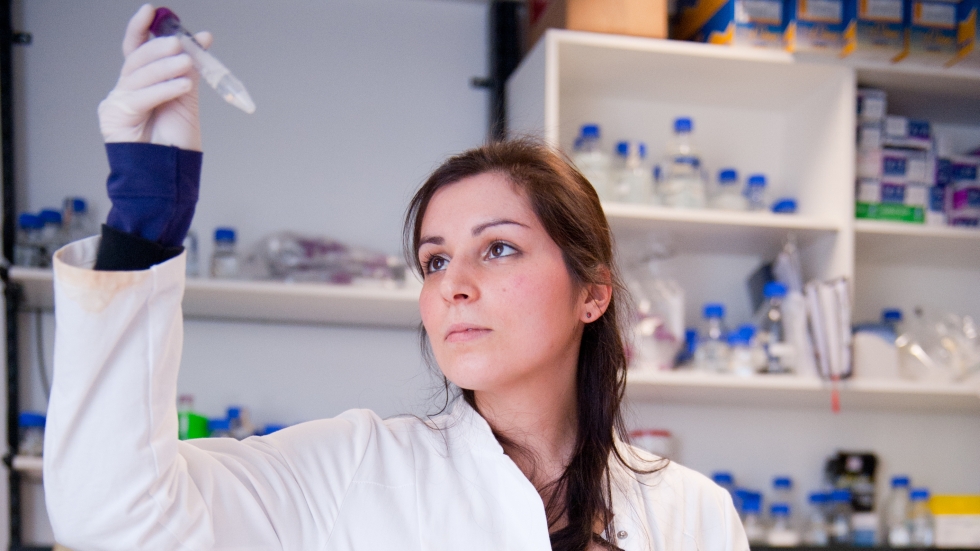
DAAD/Volker Lannert
You will find an overview of the funding opportunities for international researchers in Germany in our selection of funding programmes .
Our newsletter and our Facebook and Twitter channels also keep you informed about current funding for PhDs and other programmes to finance your postdoctoral research project in Germany.
Search for your future funding programme:
- PhD students
- Early career researchers & postdocs
- Established researchers
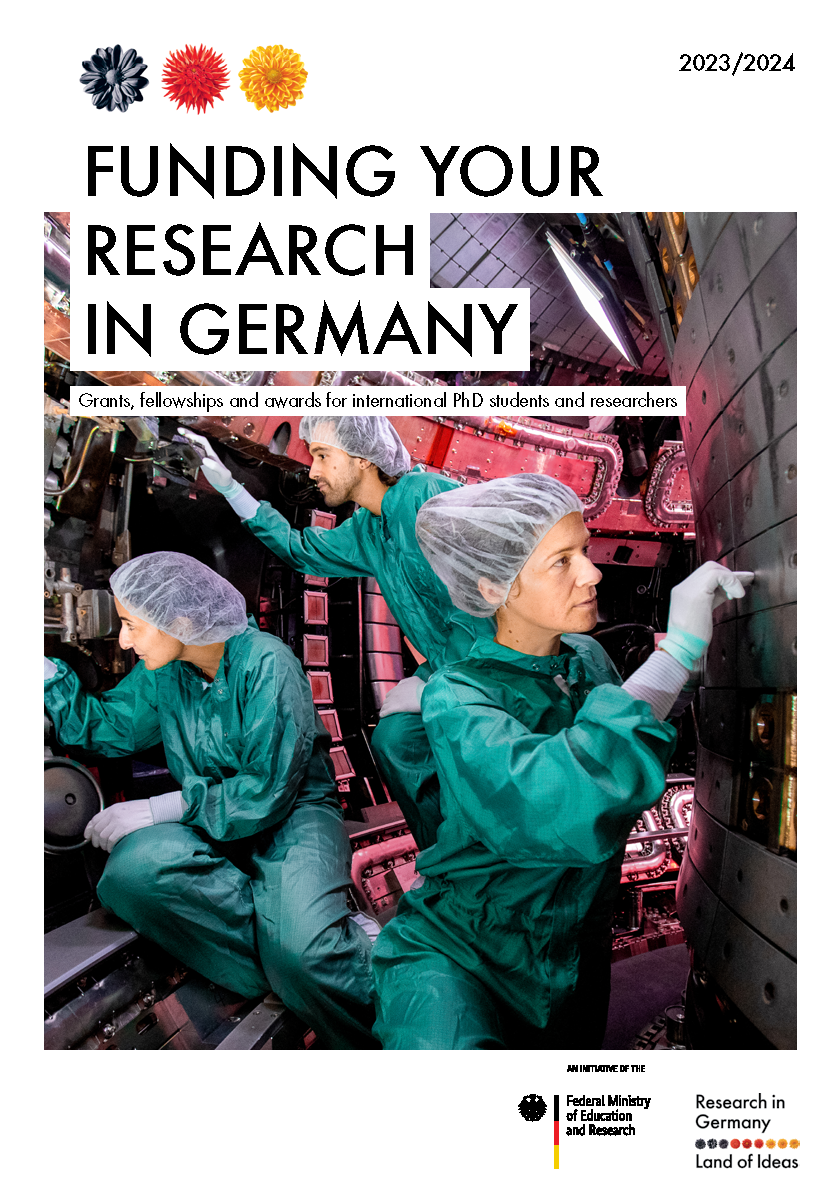
Funding your research in Germany
A selection of funding programmes for German and international academics run by the leading research funding institutions. Target group: international PhD students, postdocs and academics interested in a research stay in Germany.
Search for a wide range of funding programmes for international PhD students, postdocs and established researchers.

COMMENTS
Research funding. Germany places great emphasis on globally networked research cooperation. Many organisations support international researchers and academics: more than 43,000 international researchers are currently being supported with scholarships. Furthermore, research funding in Germany is intended to finance the development of new ideas ...
The aim of this programme is to support doctoral degrees at the student's home university with integrated research phases in Germany. More Research Grants - Doctoral Programmes in Germany. International PhD students can realise a doctoral project (individually or in a structured programme) at a state or state-recognised German university or ...
Research in Germany; Academic Fixed-Term Contract Act; Mission Education: The Nobel Laureates gathered once again gather in Lindau for the 63rd Meeting; Research. Overview Research. ... Research funding has the goal of financing the development of new ideas and technologies. Funding is provided for projects in a wide spectrum of research areas.
Research in Germany; ... Research Funding Quick links All Funding Programmes Compact overvie w. Forms and Guidelines (in German only) Individual Grants Programmes A How-To-Guid e. Funding. Funding Opportunities. Special Funding Initiatives. Things to Know about the Proposal and Funding Process.
The Deutsche Forschungsgemeinschaft (DFG, German Research Foundation) uses the term 'long-term project' to refer to research projects in the humanities and social sciences that require continuous funding for at least 7 years and a maximum of 12 years (possible examples being editions, corpora, archaeological excavations, and social or behavioural longitudinal studies).
It implements targeted activities around the globe to promote Germany as a land of ideas and innovation. The online plattform www.research-in-germany.org is the key gateway for international researchers to learn more about funding programmes and grants at all career levels, the German research landscape and to read the latest R&D news.
Short-term research in Germany Duration of the funding 1 to 2 months Value • US$2,000 to US$3,000 Research Grants - Short-Term Grants Who can apply? Candidates who hold a master's de-gree, Diplom, or PhD (postdocs), and, in exceptional cases, students who will have completed their bachelor's degree by the time they begin their research What ...
Germany offers excellent research opportunities for EU/international PhD students and researchers. Universities and other higher education institutions as well as public- and private-sector non-university research institutions and large research funding organisations support international researchers with postdoctoral jobs and fellowships. Interesting development opportunities for ...
Great organisations and good funding: Germany boasts over 1,000 publicly funded research institutions, plus numerous departments of research and development in industry. Recently, annual internal corporate expenditure on research and development (R&D) in Germany reached a new record high of 75.6 billion euros.
Funding programmes. Roughly 23,000 international visiting researchers received financial support from German funding organisations, agencies and research institutions in the 2020 pandemic year. A further 15,000 were employed at large non-university research organisations and more than 52,000 at German universities. ©